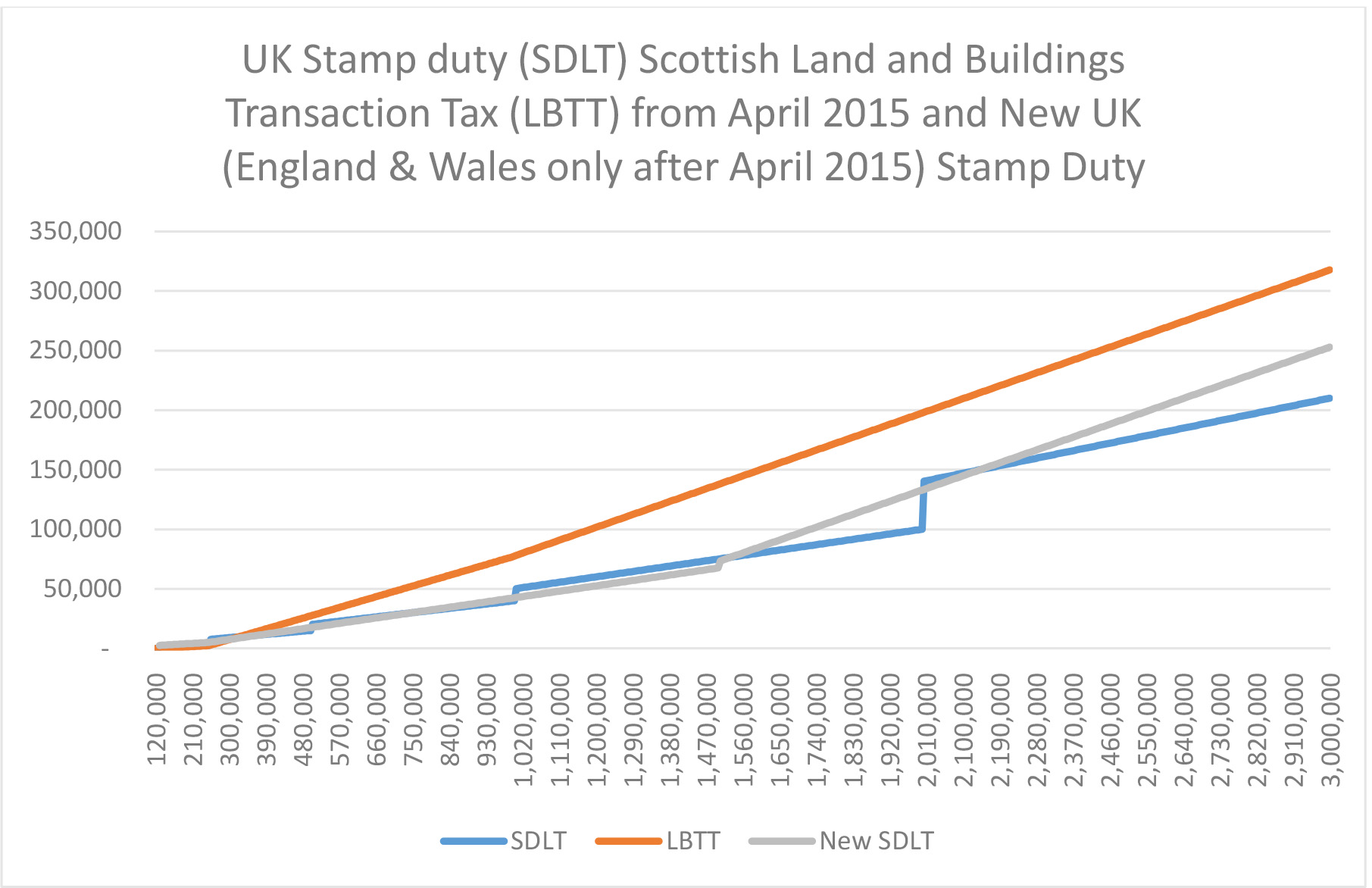Ian McKee : We are GLM
Will LBTT Kill the Property Market in Scotland?
January 30th, 2015By David Gibbon - Director, GLM
The differences between English and Scottish property, already distinctive because of the differing legal systems and property purchase systems, are destined to move further apart. The new transaction tax due to commence in Scotland in April or whenever a new computer system and a new organisation can be put in place, will make the cost of property transactions distinctly more expensive in Scotland than in England with the marginal exception of the sort of properties that buy-to-let landlords favour, which will be cheaper. The UK Stamp Duty (applicable in Scotland until April) has also been revised but much less dramatically. When SBTT comes into force, for much of the market a property in Scotland will cost significantly more in tax than the equivalent property in England. Of course in practical terms this will not be so noticeable when making comparisons because property in Scotland is so much better value than property in England, or at least in the South East but it will make a difference to the market within Scotland.
At the height of the property boom it was always something of a puzzle that UK governments did not use the mechanism of Stamp Duty to dampen down the property market when the market got over heated. Conversely it seems odd that the Scottish Government have decided to put the brakes on property during a period of poor economic activity. On the face of it, by following Scotland’s lead in ironing out the manifestly market distorting steps in the level of Stamp Duty tax but making hardly any change to the overall tax level, the UK government has played a better hand.
Scotland’s LBTT may, politically, play as a sort of Mansion Tax without all the obvious drawbacks of such a tax. If it slows the transaction market that might be seen as a good thing, making property speculation and, in particular, property development, less attractive. However there are likely to be negative effects. Niche developers have done much to lessen the impact of the housing shortage by adapting the existing housing stock to changing needs. However if a larger slice of their profit on every transaction is taken by the government, niche development will become harder. If there is less movement in the market and people stay longer where they are, this could also lead to less efficient overall utilisation of the housing stock as well as less activity devoted to adapting it: a sort of “bedroom tax” in reverse for the private sector?
Another concern could be in the large country house market. Scotland is well endowed with some remarkable properties, many of them the product of inward investment and returning Scottish expats who made their fortunes in the further reaches of the Empire. These properties could be seen as an asset to Scotland but, in many cases, are a liability to their owners. Although they take wealth to own and maintain, they usually make very little economic sense so they attract owners, including present day ex-pats amongst others, who are drawn by considerations other than, purely, money. In view of the considerable scale of this legacy it could be argued that we need to nurture rather than to repel this type of investor. Imposing a further tax on them could land the country with a great many formerly magnificent but now deteriorating mansions.
However if Scotland wishes to dampen down the property market and, perhaps, drive innovation and investment to seek other avenues of fulfilment, perhaps the new LBTT will ultimately be seen as a benefit but in overall terms this looks like a risky strategy and it does not look like an especially deft move.



